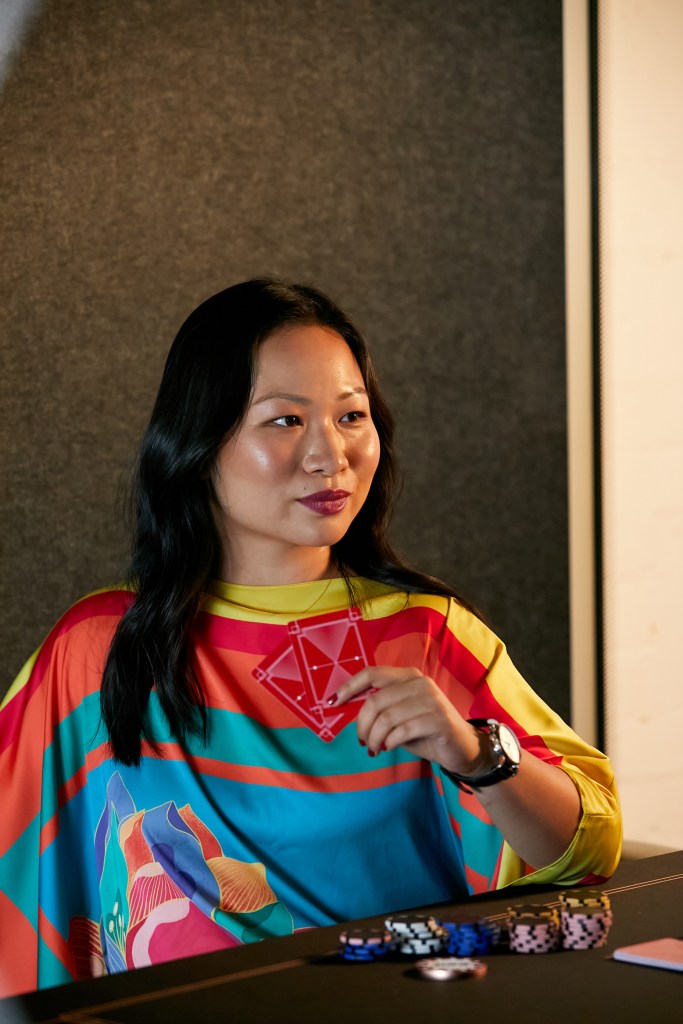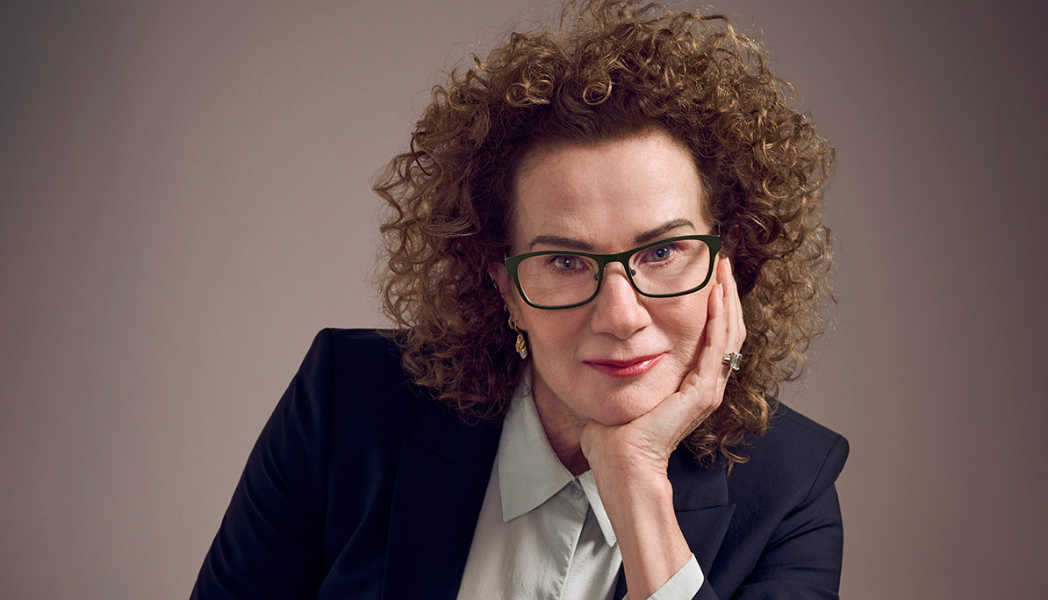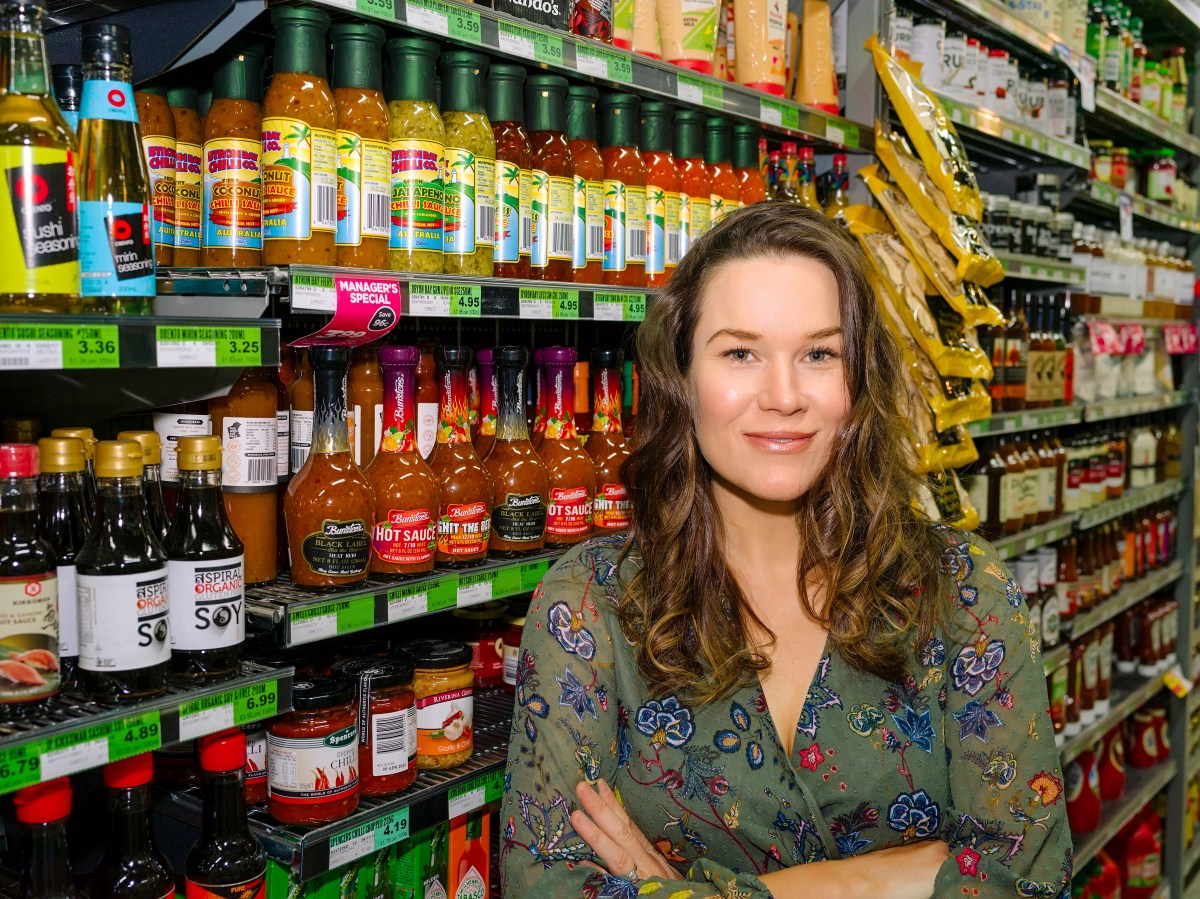California recently became the first US state to pass legislation on diversity in venture capital in a bid to increase funding to female-founded start-ups. But Jessy Wu, newly-appointed partner at Australia’s AfterWork Ventures, says a “paint by numbers” view of diversity has never sat well with her. She discusses her start-up story, what she sees as the root of the problem and possible solutions.

In August, Rayn Ong from Archangel Ventures put on a poker night with investors across some of Australia’s biggest VC firms. According to his calculations, there was a ‘few billion’ in funds under management at the table. The game itself was low-stakes: a $20 buy-in. But for attendees, it was their first introduction to poker and a network.
“There are no sharks,” Jessy Wu, investment principal and head of community at AfterWork Ventures, says. “Everyone’s just playing in a nice, open-hearted way. We’re all just trying to learn.”
But eventually, attendees who get cocky enough can head to a higher-stakes table – and that’s not about buy-in cost. “You can come along to the poker nights that are a little scarier, where all the VC partners are. You could be sitting at the end of a poker night with someone at a firm managing hundreds of millions of dollars.”
For Wu, a poker player since high school, these nights have generated what she calls ‘career capital’. “These initiatives are a lot more impactful in bringing more women to the table.”
Maybe more impactful, she surmises, than Bill 54 might be: a Californian law mandating that venture capital firms annually report the diversity of founding teams in their portfolio to California’s Department of Civil Rights.
That Bill was signed into law in October this year, effective March 1, 2025. VCs won’t just be required to report on gender but also race. There are no mandates or quotas. Instead, the legislation takes a naming and shaming approach.
It’s the hard and unglamorous work of creating spaces and environments where they feel invited and welcomed – and giving people on-ramps to engagement. That could look like activations that bring everyone together, and there’s a focal point to the event, and it starts conversations after the fact.”
– Jessy Wu, partner at AfterWork Ventures
It comes at a time when funding for female-founded start-ups has remained consistently low. According to Pitchbook, female-only founded start-ups received just 2% of the total capital invested in VC-backed start-ups in the US in 2022. In Europe, that percentage dropped to 0.9%.
The picture is largely the same in Australia. Across 2023, just 5% of female-only founded start-ups received VC funding, according to Cut Through Ventures Q3 2023 report.
The enactment of this law overseas has prompted some founders and venture capitalists in Australia to call for similar legislative action.
“If VCs are more publicly accountable for who they invest in, it gives founders of all genders and ethnicities a clearer picture of who they’re getting into bed with,” the founder of FreightExchange, Cate Hull, says. “If the next Canva values Diversity, Equity, and Inclusion (DEI) and seeks funding from VCs who predominantly support male founders, they may question if their values align. It’d also go a long way to ensuring investors don’t ‘pinkwash’.”
But Wu isn’t convinced. “A ‘paint by numbers’ view of diversity has never sat well with me.”
Philosopher to venture capitalist
Wu double majored in Philosophy and English Literature at university before landing in management consulting. But while you can take the girl out of the philosophy classroom, you can’t take the philosophy out of the girl.
“I was slapped on the wrist for being too independent-minded and providing too much of a challenge,” she says. “Sustaining my debate when I didn’t fully agree with the marching
orders. I wrote about this on LinkedIn.”
You can read a lot about Wu on her LinkedIn – she has nearly 14,000 followers on the social platform and is a prolific poster about tech, diversity, investing and venture capital.
In one post, Wu says she immigrated from China to New Zealand in 2001 when she was just six years old. Candidly, she recounted an experience of being invited to a birthday party where she was told to bring ‘togs’ – but didn’t know what they were.
“As a kid, you don’t have the language to make sense of your migrant experience – as something structural, something common, something shared,” she wrote. “I grew up, and I acquired the cultural shibboleths. I figured out how to fit in. But embracing my ‘Otherness’ – what had once been the source of alienation and shame and dread – that took much longer.”
But back to consulting – and getting ‘slapped on the wrist’.
“I thought, is this feedback oriented towards making me a more formidable consultant or at making me a better cog in the machine, one that doesn’t squeak as loudly? I think it’s the latter. If I take this feedback, I’ll be doubling myself down in a way that is not conducive to becoming the most formidable version of myself later in my career.”
So, Wu sought an environment where her independent-mindedness and her ability to think critically and challenge points of view were core skill sets instead of a quirk to be quashed. And for her, venture capital felt like a good fit.
In 2019, she was connected to the partners at NAB Ventures and sat for an interview. “I prepared hard for that interview,” she says. She got the job. But after two years with NAB, there was an opportunity to join a fund as it was being founded – AfterWork Ventures. She was recently promoted to the partnership.
Maybe diversity in action doesn’t just look like panels that resemble the United Colors of Benetton. Maybe it looks like patiently dealing people in – and sorting out the side pots.”
– Jessy Wu, partner at AfterWork Ventures
AfterWork Ventures was founded by Alex Khor and Adrian Petersen – both Forbes 30 Under 30 alumni – in 2017 as an informal micro-fund to invest in seed and pre-seed companies. “When you’re ready to turn your ‘after work’ project into your life’s work,” the fund states. Its cheque sizes range from $100,000 to $500,000. It has invested in 54 companies, totalling $20 million in funds under management.
“I got to shoot my shot in helping AfterWork articulate an innovative business model in the VC industry, which is this community-oriented fund, and shape the brand values,” Wu says. And that includes fostering an environment where diversity and inclusion aren’t just an initiative but daily commitments.
“It’s the hard and unglamorous work of creating spaces and environments where they feel invited and welcomed – and giving people on-ramps to engagement. That could look like activations that bring everyone together, and there’s a focal point to the event, and it starts conversations after the fact.”
It’s like a poker night.
Related
Is DEI legislation the answer?
While the legislation is a step, it’s not a solution, Wu says. But there’s something else too: “I think it’s important to note that we shouldn’t put VCs on a pedestal – they aren’t necessarily agents of social change. It isn’t their core job. Their core job is to invest in alignment with their investment memorandum, and people have given them money to turn into more money and produce outlier returns.”
Wu says the problem with funding for female-founded start-ups begins earlier in the piece; it’s getting females to launch start-ups.
“Where there’s the most unevenness in our funnel is really at that inbound pitch-deck submission phase,” Wu says. “You’ll have five pitch decks, from all-male teams, for every one with a female founder or co-founder.”
According to Startup Genome, just 15% of start-up founders are women in 2023. But take a step back: just 33% of women consider a tech career, compared to 69% of men (Year 13). Just 26% of tech workers are women (according to data from the Tech Council of Australia).
“The start-up founders that come through our door are mid-career professionals,” Wu says. “They’re in their early 30s. But I think there’s a correlation between it being the ideal time to start a company and, for women, when they feel that’s their prime years of childbearing. And I certainly feel this myself.”
Free childcare could help with that, Wu says. But so could taking a different approach to the problem.
“Maybe diversity in action doesn’t just look like panels that resemble the United Colors of Benetton. Maybe it looks like patiently dealing people in – and sorting out the side pots.”
A grassroots solution
Startmate launched in 2011 when Niki Scevak (who would go on to found Blackbird Ventures) and a few successful founders (like Mike Cannon-Brookes and Scott Farquhar from Atlassian) each sank $10,000 into a micro-fund to invest in early-stage founders. The organisation, now run by Michael Batko, has invested in more than 170 start-ups, runs accelerator and fellowship programs for women, students, athletes, aspiring managers.
Its goal is to make Australia and New Zealand the best place in the world to build a start-up. In the beginning, that meant providing access to funding. Today, Phoebe Pincus, Stargates’ COO says Startmate is focused on talent.
“Our challenge is to create pathways into tech start-ups, particularly with diversity front-of-mind,” Pincus says. That prompted the 2019 launch of the organisation’s eight-week Women’s Fellowship. The program, which costs $3,000 per person, aims to increase the representation of women in start-ups.
Steph Skevington, the co-founder of Butter Insurance, went through the Women’s Fellowship in 2021. By the end of the 8-week program, Skevington and her co-founder CASSIE BELL had devised the idea for Butter, an insurance company aimed at the younger generation. While the pair didn’t initially receive funding from Startmate at the end of the Women’s Fellowship (they did, after completing the Startmate Accelerator), the connections they made led to angel investment.
“It gave us confidence to ask for opportunities we may not have otherwise done,” she says.
Look back on the week that was with hand-picked articles from Australia and around the world. Sign up to the Forbes Australia newsletter here or become a member here.




